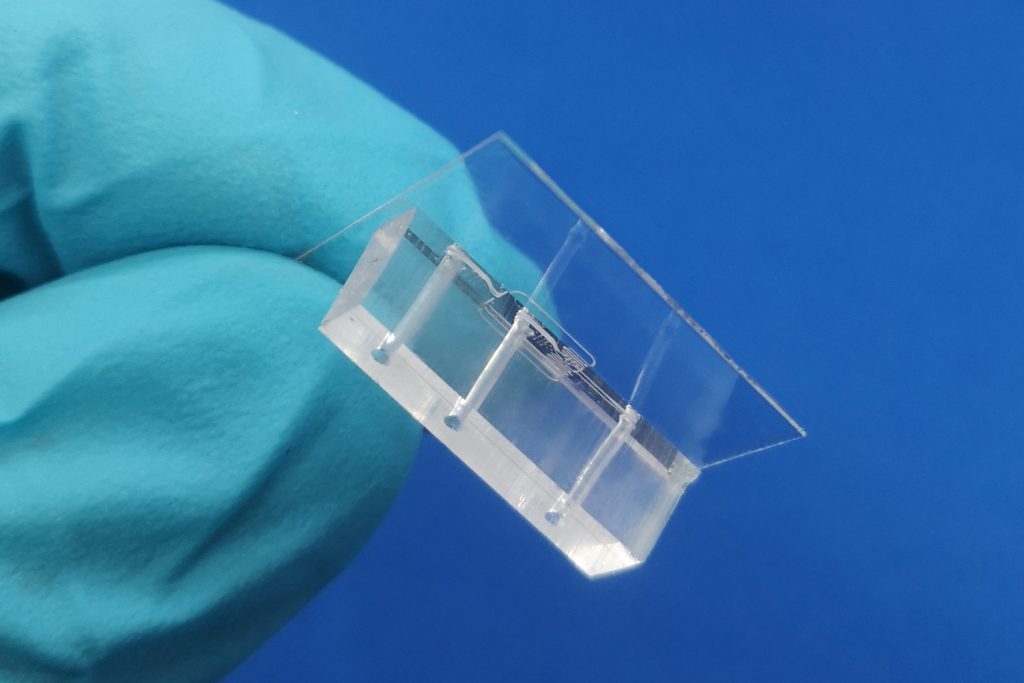


We provide prototyping and production services for droplet-based microfluidics. Also, custom-made microfluidic devices.

Our clients usually come with already developed chip designs.
We can work with your provided designs or develop a prototype together.
Microfluidic chip price depends on the microfluidic device design, the material chosen, and the number of chips ordered.
For example, a typical single-layer glass chip will cost from 50 € per chip, ordering 100 units and will take two weeks to deliver.
If engineering services are needed, a price is calculated separately.
Droplet-based microfluidic systems are compatible with many chemical and biological reagents. Also, perform a variety of operations that can be rendered programmable and reconfigurable.
The droplet sizes are adjustable and can be reduced to dimensions comparable to those of individual cells.
The droplet microfluidics application field is broad. It covers molecular biology, microorganism studies, microparticle synthesis, drug discovery & development, etc.
Glass, silicon, or polymer can be used for droplet-based microfluidic chip production. Every material has its advantages and disadvantages; thus, the choice depends on the application, type of solvents, design, and budget.
Custom design glass microfluidic chips and devices manufacturing. Ultra-high precision results.
Glass multiwell plates designed to exact cell culture application. Circular wells, square wells, hexagon wells,…
We offer ultra-high precision laser glass micro drilling. Highest quality in the market.
Prototyping and production of custom-made microfluidics for single-cell analysis or other applications.
Rapid prototyping services to test your idea in an actual environment.
Ultra-high precision production services on all materials - glass, sapphire, ceramics, silicon, optical fibers, metal, plastic.
Tailor-made laser systems for industry & science. Designed for your specific applications.
WORKSHOP OF PHOTONICS
Mokslininku st. 6A, Vilnius, LT-08412, Lithuania
Phone: +370 5 215 7551
E-mail: [email protected]
Altechna R&D, UAB
Company code 301502628
VAT code LT100006155012
Bank – SEB 70440
LT87 7044 0600 0770 8092